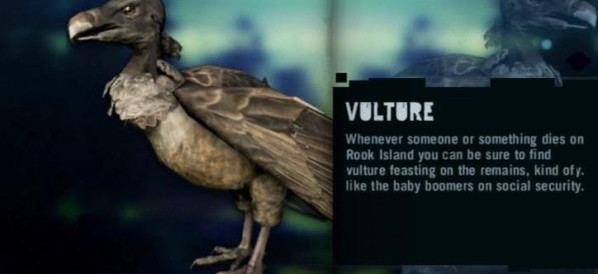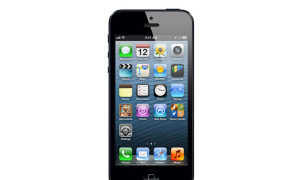 5 Terms
5 TermsHome > Terms > English (EN) > television and minorities
television and minorities
Protests by NAACP, La Raza and other activists in 1999 highlighted the absence of minority characters on new network shows, leading NBC, ABC, FOX and CBS to scramble to retrofit, offering and forcing them into negotiations about ethnicity and casting as well as longer-term commitments to employment behind the camera. At the same time, other networks like UPN were accused of pandering to young African American demographics with irresponsible teen shows. The dearth of Asian Americans on any network beyond roles as newscasters or passing characters was hardly discussed.
Meanwhile, cable opportunities like BET and the growth and changes of Spanishlanguage stations like Telemundo and Univision complicate any simple conclusions about race and television even before one considers the limited minority presence in the upper echelons of the broadcast industries as producers, directors and writers. If television both reflects and shapes America, it is important to understand how it has dealt with—and continues to deal with—critical divides like race and ethnicity.
In the golden age of television and its aftermath, “whiteness” functioned as a norm against which some black racial stereotypes emerged in crossover shows from radio like the popular albeit racist Amos’n Andy or the roles given black women as maternal servants in shows like Beulah. The Nat Kïng Cole Show (1957) was the first African American show on prime-time network TV, but disappeared after one season. Asians took on such safe domestic roles in generations of cooks on Bonanza, Bachelor Father and Dynasty, while Hispanics added local color to westerns. There was hardly any presence of Native Americans outside westerns, or people of Arab and South Asian origin.
Julia (1968–71), which cast Diahann Caroll as an attractive, educated black professional single mother, seemed to be a breakthrough in fighting stereotypes, although some critics argued that the character and plots were so anodyne as to make race irrelevant. The lack of black men was also problematic, although the spy series I Spy (NBC, 1965–8) had brought Bill Cosby as Alexander Scott onto screen as a Rhode’s scholar and arch commentator on companion Kelly Robinson (Robert Culp).
In fact, the presence of African American stars seemed to grow thereafter. The Jeffersons (1975–85), whose upwardly mobile title characters spun off from Norman Lear’s All in the Family, provided comic yet edgy commentary on problems like intermarriage, class and exclusion in American society played out by African American characters with evident flaws. Good Times, a spin-off of another Lear series, played out even grittier issues in a working-class family in public housing. Capping off this golden age of minority television, in a sense, were such miniseries as Roots (1977, 1979). In 1982 Cosby began his decades of involvement with the Cosby Show and other productions, while Miami Vice (1984–9) confused categories of ethnicity and virtue.
At the same time, African Americans and others began to be integrated into the faces of television, including news, sports coverage and ensemble television—long-running hospital, crime and scifi dramas (Star Trek and its heirs) invariably had at least one African American star amid other minor minority characters. Critics have argued that the additions of minority characters only serve as tokens of diversity although at times of national convulsion like the Los Angeles riots, these became pivotal perspective characters.
Yet, if urban television implied local color, it was also clear that other shows had lengthy careers in segregated worlds—whether the sometimes leftist humor of Murphy Brown or the sophisticated urbanity of Frazier, where the whole cast is white. These were balanced by (almost) all-black shows that soon found a special home on UPN. The division, however, was one of audience as well as plot, as black and white viewers consistently chose different shows as their favorites—Seinfeld, for example, did not appeal to black audiences. When City of Angels brought the predominantly black innercity medical drama to prime-time network in 2000 it thus challenged not only network history, but consumption of media within a segregated society. Moreover, it asked whether the integrated model of dramas and soaps or the separate but equal presentations of UPN and the networks more accurately reflected the state and desires of race and ethnic relations in America at the end of the century.
- Part of Speech: noun
- Synonym(s):
- Blossary:
- Industry/Domain: Culture
- Category: American culture
- Company: Routledge
- Product:
- Acronym-Abbreviation:
Other Languages:
Member comments
Terms in the News
Billy Morgan
Sports; Snowboarding
The British snowboarder Billy Morgan has landed the sport’s first ever 1800 quadruple cork. The rider, who represented Great Britain in the 2014 Winter Olympics in Sochi, was in Livigno, Italy, when he achieved the man-oeuvre. It involves flipping four times, while body also spins with five complete rotations on a sideways or downward-facing axis. The trick ...
Marzieh Afkham
Broadcasting & receiving; News
Marzieh Afkham, who is the country’s first foreign ministry spokeswoman, will head a mission in east Asia, the state news agency reported. It is not clear to which country she will be posted as her appointment has yet to be announced officially. Afkham will only be the second female ambassador Iran has had. Under the last shah’s rule, Mehrangiz Dolatshahi, a ...
Weekly Packet
Language; Online services; Slang; Internet
Weekly Packet or "Paquete Semanal" as it is known in Cuba is a term used by Cubans to describe the information that is gathered from the internet outside of Cuba and saved onto hard drives to be transported into Cuba itself. Weekly Packets are then sold to Cuban's without internet access, allowing them to obtain information just days - and sometimes hours - after it ...
Asian Infrastructure Investment Bank (AIIB)
Banking; Investment banking
The Asian Infrastructure Investment Bank (AIIB) is an international financial institution established to address the need in Asia for infrastructure development. According to the Asian Development Bank, Asia needs $800 billion each year for roads, ports, power plants or other infrastructure projects before 2020. Originally proposed by China in 2013, a signing ...
Spartan
Online services; Internet
Spartan is the codename given to the new Microsoft Windows 10 browser that will replace Microsoft Windows Internet Explorer. The new browser will be built from the ground up and disregard any code from the IE platform. It has a new rendering engine that is built to be compatible with how the web is written today. The name Spartan is named after the ...
Featured Terms
vulture
Vultures are the red headed scavengers of Rook Island. They may appear in any place with fresh or not so fresh meat. These large birds are often seen ...
Contributor
Featured blossaries
Browers Terms By Category
- Skin care(179)
- Cosmetic surgery(114)
- Hair style(61)
- Breast implant(58)
- Cosmetic products(5)
Beauty(417) Terms
- Industrial lubricants(657)
- Cranes(413)
- Laser equipment(243)
- Conveyors(185)
- Lathe(62)
- Welding equipment(52)
Industrial machinery(1734) Terms
- General astrology(655)
- Zodiac(168)
- Natal astrology(27)
Astrology(850) Terms
- Printers(127)
- Fax machines(71)
- Copiers(48)
- Office supplies(22)
- Scanners(9)
- Projectors(3)
Office equipment(281) Terms
- Zoological terms(611)
- Animal verbs(25)



